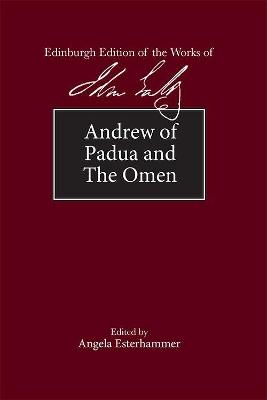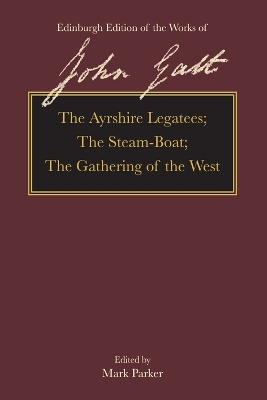The Edinburgh Edition of the Works of John Galt
4 total works
Written in 1813, this is one of the earliest regional and social novels. In it Galt realized his ambition "to write a book that would be for Scotland what The Vicar of Wakefield is for England." The text is based on the 1821 edition collated with the revision of 1822.
The Ayrshire Legatees, the Steam-Boat, the Gathering of the West
by John Galt
The Ayrshire Legatees,The Steam-Boat and The Gathering of the West first appeared as serials in Blackwood's Edinburgh Magazine during the magazine's most innovative phase. Introducing a colourful cast of narrators and characters who present idiosyncratic perspectives on current events as they travel between London, Edinburgh, and the rural west of Scotland, Galt's texts experiment with observation, dialogue, storytelling, and genre.
Bringing these three interrelated texts together in one volume for the first time, this edition includes extensive explanatory notes that identify Galt's allusions, references to historical events and social and cultural practices of the period in which they are set. An appendix details the textual changes between the Blackwood's serials and the book versions. The editor's introduction explores the origins of Galt's texts in the pages of Blackwood's Magazine and their reliance on the magazine's unique dialogism, cross-talk among contributions and inside jokes, along with the influential context of the historical novel.



